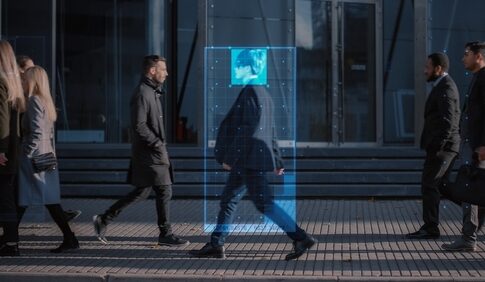The civil liberties group Big Brother Watch has raised significant concerns over Labour leader Keir Starmer's recent push to deploy facial recognition cameras, allegedly using the pretext of recent anti-stabbing riots. The organization argues that the move represents a grave threat to privacy and civil liberties.
Big Brother Watch, a prominent UK civil liberties advocacy group, has been vocal about the dangers of expanding facial recognition technology. In their recent reports, they highlighted that nearly 89% of matches by the Metropolitan Police and South Wales Police have been false positives. The technology has been particularly prone to misidentifying people of color, who are four times more likely to be scanned than their white counterparts.
I’m angry about Starmer’s address tonight.
His alarming pledge to roll out facial recognition in apparent response to recent disorder is a pledge to plunder more vital police resources on mass surveillance that threatens rather than protects democracy. pic.twitter.com/hFDqEAYM49
— Silkie Carlo (@silkiecarlo) August 1, 2024
The Labour Party, under Starmer's leadership, has been criticized for supporting the deployment of these technologies without comprehensive parliamentary debate or proper regulatory frameworks. Silkie Carlo, director of Big Brother Watch, stated that using facial recognition technology in public spaces amounts to a "stress test" on public tolerance for invasive surveillance measures. Carlo emphasized that this technology disproportionately affects minorities and could escalate tensions between the public and law enforcement.
Recent incidents have illustrated these concerns. For example, in a deployment at Oxford Circus, two young black men were wrongfully stopped and detained by police using live facial recognition technology. These men were later released without charge, highlighting the technology's propensity for error and its potential for exacerbating social inequalities.
How can people not see through this🤦🏼♀️
Starmer talking about facial recognition & tracking people 😳😂
People ignore that part & blame shift… ‘well what about the migrants’ 😆Cue riling everyone up again 🤺🥷
Ffs 🤦🏼♀️ITS ALL STAGED! 🎪
STOP BEING CLOWNS IN THEIR CIRCUS🤡 pic.twitter.com/tsUmbbaRhq— Muffy (@MuffyDeadinside) August 1, 2024
Moreover, the potential misuse of facial recognition extends beyond policing. A Big Brother Watch report uncovered that private companies and schools have also adopted facial recognition technology, often without adequate oversight or consent. This includes instances where supermarkets and other retailers use the technology to track and identify customers, sometimes leading to wrongful accusations of theft or other crimes.
The civil liberties group is urging the government to halt the use of live facial recognition until a thorough review and proper legal safeguards are established. They warn that unchecked surveillance capabilities could lead the UK down a path similar to high-tech surveillance states like China and Russia. The call to action has garnered support from over 180 tech experts and organizations, emphasizing the urgent need to address the civil liberties implications of this technology.
Big Brother Watch continues to campaign for stronger privacy protections and against the unchecked expansion of surveillance technologies. Their efforts include lobbying Parliament, organizing public petitions, and raising awareness through media campaigns. The group insists that any use of biometric surveillance must be transparently regulated and accountable to prevent abuse and protect individual freedoms.


